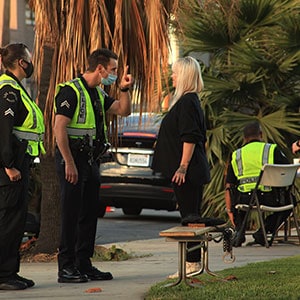
Most people are familiar with field sobriety tests. At the very least, the concept of “walking a straight line” to demonstrate that you are sober is familiar to most. These standardized field sobriety tests are used across the country by law enforcement to identify intoxicated drivers. These same officers testify in court regarding the results of these sobriety tests as part of the state’s case. There is one problem, though: these tests are completely unreliable.
If you have been stopped under suspicion of an OUI in Maine, the police will likely pressure you to perform these sobriety tests. A thorough understanding of the unreliability of these tests could benefit you. If you are arrested based in part on your performance on field sobriety tests, attorney William H. Ashe could help you defend yourself against those allegations.
Understanding Field Sobriety Tests
Standardized field sobriety tests have been commonplace among law enforcement officers since the 1970s. However, they were designed not by scientists but by police officers with no medical training. These tests were allegedly designed to serve as an objective series of tests that any trained officer could rely on. Unfortunately, that is not how these tests work in most cases.
There are three standardized tests in total: the horizontal gaze nystagmus test, the walk and turn, and the one-leg stand.
- Horizontal Gaze Nystagmus (HGN). This test is designed to identify the jerking motion the eye makes when it turns to the side. This motion, known as nystagmus, is especially pronounced in people under the influence of alcohol. The officer will have a suspect watch a pen or another object in the officer’s hand as the object is moved across the suspect’s field of vision. The officer then will watch for distinct eye twitching or the inability to smoothly track the object.
- Walk and Turn. The walk and turn test is aptly named, as it requires a person to walk a straight line, turn in place, and walk back. The officer will watch for several signals that suggest intoxication, including stepping out of line, taking the wrong number of steps, or losing their balance.
- One-Leg Stand. The final test is known as the one-leg stand. This test requires a person to stand on one leg for a period of time without putting their foot down.
How These Tests Get It Wrong
There are many problems with these tests. These issues have one common theme, though: they lead to false-positive results. With each test, there are countless reasons for failure outside of intoxication. Medical conditions can lead to nystagmus, for example. Foot injuries could make the walk and turn or one-leg stands difficult. For all of these tests, unclear instructions could result in a false positive.
More than anything, many of these tests are subjective. Whether or not a person loses their balance or fails to perfectly step heel-to-toe is a matter of opinion, not fact. In some cases, these opinions could lead to a false arrest.
When A Maine Oui Attorney Can Help
If you have been arrested after performing field sobriety tests, an OUI defense lawyer could demonstrate to a jury that there were valid explanations for these failed results. If you are ready to fight back against these charges, contact the Law Offices of William H. Ashe.
William Ashe is an experienced trial attorney with a career track record of determined
effective representation and consistent sustained success on behalf of his clients. He has
been named to the National Trial Lawyers Top 100 Criminal Defense Attorneys every year
since 2014 and has a perfect 10.0 rating by the lawyer rating site Avvo. (207) 813-2935